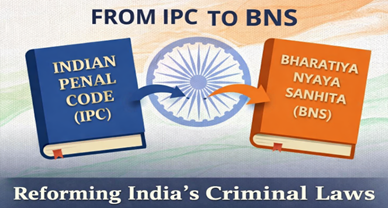From Green Dreams to Green Deception: A Socio-Legal Approach
The erstwhile king of consumption was convenience that prevailed over the concerns pertaining to environmental exploitation. However, the conscious generation of consumers of the contemporary world are moving from transformation to trend, they don’t just buy the cheapest thing off the shelf, they make statements with their purchases. As a reverberation of the augmenting awareness the consumers have become increasingly discerning about their consumption choices.[1] A FICCI report released in October 2024 revealed that approximately 63% of consumers are willing to pay extra for natural products, and 55% are inclined to do the same for organic products.[2] We have actively revolutionised from the time when the environmental concerns and consumerism were considered ‘mutually exclusive’.
Now due to this consumer insistence, the businesses have now significantly realised that aversion to incorporation of sustainable practices is not a viable option anymore. Thereby, we are now at the stage of witnessing unprecedented surge in green marketing, where advertising products, services and business practices as environmentally friendly is pervading.[3] Many businesses have starting using green trademarks to appeal to this set of sentient consumers, by adding indicative words like “sustainable” and “eco-friendly” for their products or incorporating imagery of nature, or even incorporating green colour into their logos.[4]
A green deception:
Greenwashing is “disinformation disseminated by an organization so as to present an environmentally responsible public image.”[5] With the increasing public touting of environmental merits by brands, it has become difficult to distinguish between the lip service that greenwashing offers and legitimate sustainable practices. Therefore, to detect instances of greenwashing TerraChoice, a marketing consulting firm has categorized such claims into “seven sins of greenwashing”[6]:
- Suggesting that the product is “green” based on a narrow set of attributes with a lack of attention towards other significant environmental issues.
- Making such environmental claims which is neither substantiated by the accessible information nor by a third-party certification.
- Making poorly defined or vague claims by using words like “all-natural”, which are likely to confuse the consumers.
- Making truthful environmental claims, which are irrelevant or unhelpful for the consumers seeking environmentally friendly products.
- Risking distraction of consumers from the greater environmental impacts, by making claims which may be true within the concerned product category.
- Giving false impression of a third-party certification or endorsements, while such a sanctioning doesn’t really exist.
- Fibbing by making environmental claims that are false.
The confidence of the consumer in the eco-friendly benefits attained by purchasing “green” products inadvertently plays a pivotal role in shaping purchase behaviour. Hence, to encourage more sustainable consumption and prevent “deceptive” practices, it becomes necessary to implement a regulatory framework.
ASCI Guidelines
Under the regime of the FTC’s “Guides for the Use of Environmental Marketing Claims”[7] and the EU’s Directive on the “Unfair Commercial Practices”[8], labels of sustainability cannot just be slapped on their products. Any such claim shall be underpinned by clear, verifiable evidence—and it cannot be exaggerated to mislead the consumers. Similar standards were imposed by the Advertising Standards Council of India (ASCI), requiring strict accreditations for such claims.[9] These guidelines laid down precise standards for advertising: any “comparative claims” must transparently define the basis of comparison,[10] while “general claims” must account for the entire lifecycle of the product, unless explicitly stated otherwise.[11]
Whilst the rules were enforced in 2024, ASCI has been vigilant in upholding such standard long before the codification. A few notable examples? Godrej was fined for an amount of 15 lakhs, for claiming that their soaps were “100% natural”, “biodegradable”, and “eco-friendly”, while it was found that they contained synthetic contents.[12] ASCI has also upheld complaints against and issued notices against a varied range of products for unsubstantiated claims, such as the (i)“Eco friendly vegetable cleaner”,[13] (ii) Ekam Eco Solutions’ “eco-friendly” handwasher[14] which had no accreditations to substantiate that the claim accounted for the full lifecycle of the product and (iii) the Body Shop’s misleading and exaggerated claim that the tube was made by recyclable plastic.[15]

Although in India’s multi-regulatory approach, ASCI isn’t the only body holding the reigns in bringing the dark house to the public light. The ASCI Guidelines albeit serve as the de facto standards for general advertising practices, it remains to be non-binding in nature,[16] neither are they backed by any statutory provisions,[17] except the press release by the Department of Consumer Affairs that any act of non-compliance with the ASCI guidelines shall be reported to ASCI or CCPA for appropriate actions.[18] Furthermore, even the BIS and ISI are schemes of voluntary verification, with compulsion only for certain products as notified by the government.[19] However, for more clarity among the consumers and to legitimately hold the companies accountable for their claims, it is pertinent that such standards must be binding in nature.
Consumer Protection Act, 2019
The statute serves as a strong legal instrument to defeat greenwashing. Sec 2(47) of the Act[20] broadly defines “unfair trade practises” as misleading representations with regards to the quality of goods, services or products. Greenwashing involves unsubstantiated, exaggerated or false claims about the environmentally friendly nature of products to attract the conscious consumers,[21] thereby amounting to unfair marketing strategies.[22] Thus the authorities established under the statute to take reasonable steps against such malpractices.[23]
Furthermore, the Central Consumers Protection Authority (“CCPA”) established under Sec 10 of the Act,[24] has promulgated the “Guidelines for Prevention and Regulation of Greenwashing of Misleading Environmental Claims” in exercise of the power conferred upon it under Sec 18(2)(l) of the Act.[25] These guidelines give an elaborate definition of ‘green washing’[26] and codify what was previously done through self-regulation by ASCI, as a non-statutory body.
The significance of issuance of these guidelines can be understood in backdrop of the emphasis the Supreme Court placed on promulgation of such guidelines for regulating matters pertaining to unfair trade practises and false/misleading advertisements.[27] Such a stringent scheme would intercept the consumers from spending money on illusionary environmental benefits and enable the conscious consumers to ultimately benefit the environment.[28]
SEBI Guidelines
The awareness with regards to the concept of greenwashing gained momentum in India after a circular was released by SEBI enlisting disclosure requirements for green-debt securities.[29] The circular issued in 2023,[30] laid down guidance for advertising “green debt securities”,[31] compliance to which was mandated by the SEBI Operational circular. [32]
Similar to the Guideline 7(b) of CCPA[33] the SEBI guidelines require the issuers of green debt securities to cherry pick data and selectively obscure the unfavourable data from the consumers, use any labels that could be misleading.[34] These guidelines also prohibit any untrue claims that may give a false impression of certification from a valid third-party entity. [35] Furthermore, a strict requirement of monitoring and assessing the undertaken measures for sustainability, minimized detriment to the environment, as envisaged in the offer document issued at the instance of raising funds for transitioning to a greener pathway. [36]
Nonetheless, it is conspicuous to note how despite these provisions to tackle deceptive and misleading claims, brands somehow manage to escape scrutiny by incorporating clever marketing tactics. A quotidian example is the common practise in food packaging where bold claims like “NO Sugar” is printed on the front of the packaging, in a format to catch the customer’s eye, only for the ingredients printed on the back to reveal presence of sugar under alternative names, or brands claiming their products to be “100% natural” when that might be unattainable in complete lifecycle of the product. This common and unchastised practice exploits the ambiguities and consumer perception, obscuring the line between transparency and manipulation. If “NO” is meant to be an absolute statement, then this kind of misleading labelling broaches pertinent concerns about accountability in the industry.
What more can be done?
Considering the gaps in the current implementations, having standardized definitions for terms like “NO sugar” or “100% natural”, ensuring that such claims can be only used when they match the stated standards. Furthermore, it could be made a mandated practice to display any such qualifying information clearly to avoid misleading and confusion.
While the regulations impose the responsibility and consequential liability on the businesses by hindering them from defrauding the consumers by making false and exaggerated claims, it is also important to educate the conscious consumers about the persisting greenwashing practices. Social media and social media influencers have emerged as strong mobilizing forces for awareness in the recent years. From infographics to distil current events into swift, comprehensible visuals for engagement, to social mobilization via campaigns, marches, and petitions, social media has been conducive to large scale change. Recently, social media influencer, FoodPharmer wielded their considerable reach and impact to hold food companies like Nestle accountable for the misleading health information promoted in their advertisements. To that end, with influencers like EarthWorri similarly gaining popularity, addressing greenwashing and calling out brands that engage in the unfair practice, can make consumers more aware of the consumption choices and further pressure brands to have more transparent marketing strategies.
Author: Niharika Batra, in case of any queries please contact/write back to us via email to chhavi@khuranaandkhurana.com or at Khurana & Khurana, Advocates and IP Attorney
[1] Nair PB, “Profiling Green Consumer Characteristics: An Eternal Quandary” (2015) Journal of Advanced Management Science 174.
[2] FICCI, “SPURring Growth in FMCG, Retail and e-Commerce Sectors in India” (Deloitte 2024).
[3] Garg S and Sharma V, “Green Marketing: An Emerging Approach to Sustainable Development” (2017) 12 International Journal of Applied Agricultural Research 177. See also, Huang C and Kung F, “Environmental Consciousness and Intellectual Capital Management” (2011) 49 Management Decision 1405.
[4] “Sustainability Seals: Understanding Green Trademarks and Greenwashing” (S.S. Rana & Co, August 29, 2024) <https://ssrana.in/articles/sustainability-green-trademarks-greenwashing/> accessed February 3, 2025
[5] Phyper J-D and MacLean P, “Good to Green: Managing Business Risks and Opportunities in the Age of Environmental Awareness” (John Wiley & Sons 2009).
[6] Markham D, Khare A and Beckman T, “GREENWASHING: A PROPOSAL TO RESTRICT ITS SPREAD” (2014) 16 Journal of Environmental Assessment Policy and Management 1450030.
[7] FTC, “Guides for the Use of Environmental Marketing Claims” (2022) 87 FR 77766.
[8] European Parliament, Council of the European Union, “Directive 2005/29/EC concerning unfair business-to-consumer commercial practices” (2005).
[9] ASCI, “Guidelines for Advertisements making Environmental/ Green Claims” (2024).
[10] ASCI, “Guidelines for Advertisements making Environmental/ Green Claims” 2024, guideline 2.
[11] ASCI, “Guidelines for Advertisements making Environmental/ Green Claims” 2024, guideline 3.
[12] Gupta P and Kalra CN, “Green to Greed: Unravelling Corporate Deception” [2024] ICSI 122.
[13] Complaint Outcomes Details- ASCI, “Eco Natural Venture – Veggie Washer – Natural Fruit and Vegetable Cleaner Liquid” (ASCI, October 11, 2022) <<https://www.ascionline.in/complaint-outcomes-details/?case_id=2024-3-28-6-C.29006> accessed February 10, 2025
[14] Complaint Outcomes Details- ASCI, “Ekam Eco Solutions Pvt. Ltd. – Zerodar CARE Natural Hand Wash Liquid” (ASCI, October 11, 2022) <<https://www.ascionline.in/complaint-outcomes-details/?case_id=2024-3-28-6-C.29006> accessed February 10, 2025
[15] Complaint Outcomes Details- ASCI, “Quest Retail Private Limited – The Body Shop – Strawberry Shower Scrub 200 ml.” (ASCI, October 11, 2022) <<https://www.ascionline.in/complaint-outcomes-details/?case_id=2024-3-28-6-C.29006> accessed February 10, 2025
[16] Teleshop Teleshopping v Advertising Standards Council of India [2015] SCC OnLine Bom 8777.
[17] Century Plyboards (India) Ltd. v Advertising Standards Council of India [2024] SCC OnLine Mad 2133.
[18] Department of Consumer Affairs, Press Release March 2024, <https://www.ascionline.in/wp-content/uploads/2024/03/CCPA-ASCI-Press-release.pdf> accessed 11 February 2025.
[19] A. N. Mishra, “BIS Certification | BIS Certification Schemes in India” (Aleph INDIA, December 2023) <https://alephindia.in/blog/bis-certification-schemes.php#:~:text=Although%20the%20product%20certification%20scheme,water%20heaters%2C%20cables%2C%20etc.> accessed February 3, 2025
[20] The Consumer Protection Act 2019, s 2(47).
[21] Pimonenko T and others, “Green Brand of Companies and Greenwashing under Sustainable Development Goals” (2020) 12 Sustainability 1679.
[22] Ibid.
[23] The Consumer Protection Act, 2019, s 19.
[24] The Consumer Protection Act, 2019, s 10.
[25] The Consumer Protection Act, 2019, s 18(2)(l).
[26] CCPA, “Guidelines for Prevention and Regulation of Greenwashing or Misleading Environmental Claims” 2024, guideline 2.
[27] Indian Medical Association & Anr v. Union of India & Ors., Writ Petition (Civil) No. 645 of 2022
[28] Feinstein N, “Learning from Past Mistakes: Future Regulation to Prevent Greenwashing” [2012] SSRN Electronic Journal.
[29] SEBI, “Revised Disclosure Requirements for Issuance and Listing of Green Debt Securities” (2023) SEBI/HO/DDHS/DDHS-RACPOD1/P/CIR/2023/023.
[30] SEBI, “Dos and don’ts relating to green debt securities to avoid occurrences of greenwashing” (2023) SEBI/HO/DDHS/DDHS-RACPOD1/P/CIR/2023/020.
[31] SEBI, “Dos and don’ts relating to green debt securities to avoid occurrences of greenwashing” (2023) SEBI/HO/DDHS/DDHS-RACPOD1/P/CIR/2023/020, Regulation 26.
[32] SEBI, “Operational Circular for issue and listing of Non-convertible Securities, Securitised Debt Instruments, Security Receipts, Municipal Debt Securities and Commercial Paper” (2021).
[33] CCPA, “Guidelines for Prevention and Regulation of Greenwashing or Misleading Environmental Claims” 2024, guideline 7(b).
[34] SEBI, “Dos and don’ts relating to green debt securities to avoid occurrences of greenwashing” (2023), para 4(iv).
[35] SEBI, “Dos and don’ts relating to green debt securities to avoid occurrences of greenwashing” (2023), para 4(vii).
[36] SEBI, “Dos and don’ts relating to green debt securities to avoid occurrences of greenwashing” (2023), para 4(i).


